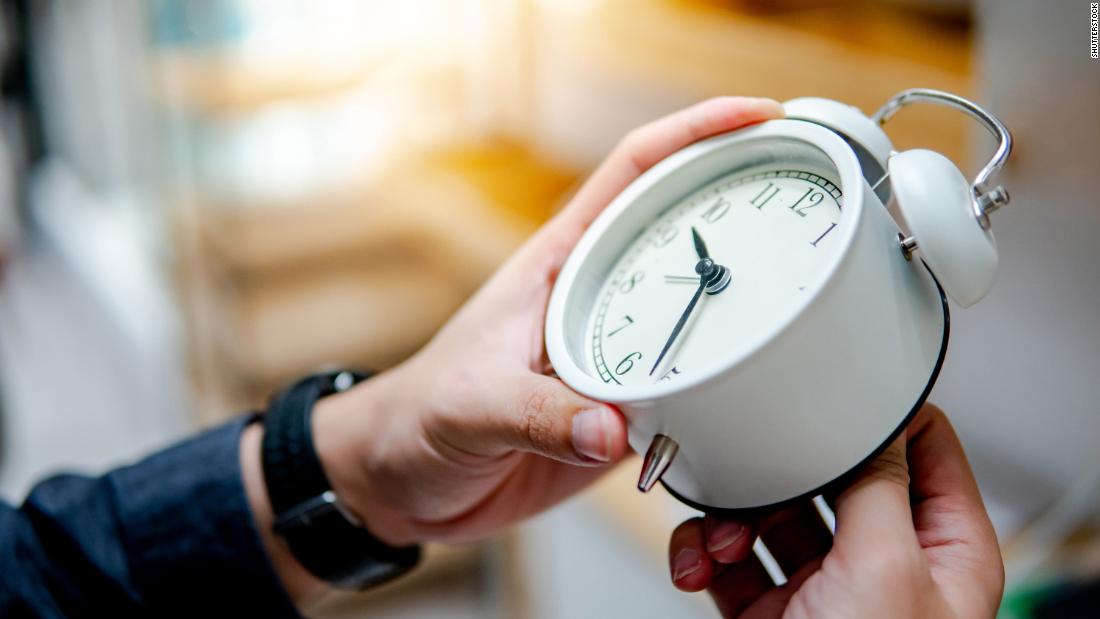In the spring, the transition is reversed, with the panic of waking up unexpectedly an hour late for what is scheduled for that morning.
Daylight saving time starts on the second Sunday in March at 2 am and ends on the first Sunday in November at 2 am in the United States. This year, it is March 14, when we advance our clocks by one hour, until November 1, when we delay an hour. And you in Europe are not exempt, but you will have to wait two more weeks until March 28th.
However, not everyone follows the tradition in the United States – Hawaii and Arizona does not – nor does China and Japan. About 70 countries participate in this half-yearly exercise on time changes.
Daylight saving time is an enigma for many people, who wonder why we do it. While it aims to save energy and make better use of daylight, it is recognizable to most as something they can forget, which can cost them accidentally falling asleep or waking up less rested than they expected.
Rather than fighting for semiannual change, Dr. Shalini Paruthi advises people to prepare for the change, so that it doesn’t disrupt our sleep schedules.
Adults should sleep at least seven hours for good health, productivity and daytime surveillance, said Paruthi, co-director of the Center for Research and Sleep Medicine at St. Luke’s Hospital in Chesterfield, Missouri.
“Even if the clock changes, it doesn’t mean that the duration of our sleep should change,” she said.
It is important to see the spring change not as a loss of an hour of sleep, but a change in sleep habits to make up for that hour, she added.
Depending on when you realize that daylight saving time is coming, there are a few ways that Paruthi suggests you to get ready:
- About a week before: Start by changing bedtime and waking up 10 minutes early every night and every morning.
- Three days in advance: Start by changing bedtime and waking up 20 minutes early every night and every morning.
- The night before: It’s not too late to sleep seven hours yet – two options are to go to bed half an hour early and sleep half an hour or go to bed an hour early.
The risks cited by the group include adverse cardiovascular events – such as increased risk of cardiovascular morbidity, myocardial infarction, stroke and hospital admissions due to the occurrence of acute atrial fibrillation – mood disorders and circadian misalignment.
Paruthi also advises other ways to prepare for change – which can also become a regular practice, as these tips are also good for general sleep hygiene.
As well as maintaining a consistent sleep routine, eating habits and meal times are important in helping our internal clock to have some time hints, said Paruthi.
If people eat at regular times every day, it helps to keep their internal clock on a good schedule, she said. “The other important thing – and I know we hear that all the time – is to turn off our electronic devices, at least about half an hour before going to sleep.”
The blue light from our screens can be over-stimulating, triggering a state of alertness, and the content on our phones can be very engaging, explained Paruthi.
“Sometimes, our brains don’t have time to process and transition and prepare for sleep,” she said.
Finally, reserve your bed just to sleep and have sex, said Paruthi. Doing other activities, like watching TV or working, can accidentally drive the brain into wrong habits, she said.
It was difficult for Paruthi to find a silver lining in summer time, although she said that it doesn’t hurt to be reminded of the importance of sleep and that we need to pay attention to it.
“At least it brings awareness that we really need to make sure that we are getting enough sleep,” she said.
